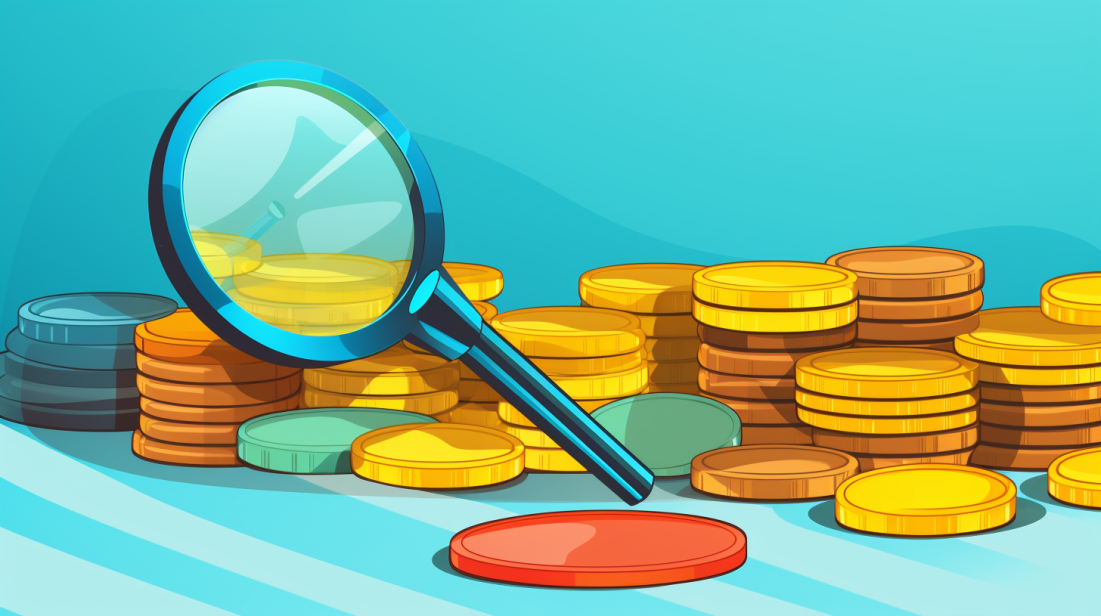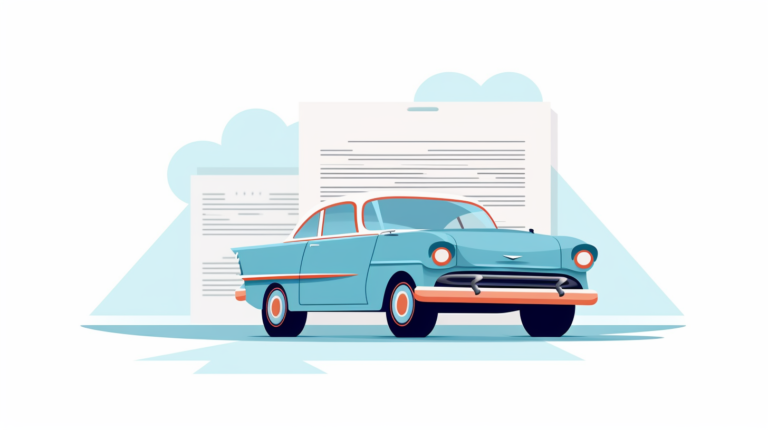Is Getting a Personal Loan for Debt a Good Idea?

Ever found yourself scratching your head, pondering whether a personal loan might be the golden ticket to covering that looming credit card debt? You’re not alone. After all, we are in the same boat with our fellow Americans who are trying to stay afloat amidst over $1 trillion in total credit card debt.
To make sense of it all, I decided to roll up my sleeves and delve into the labyrinth of financial jargon and puzzling options out there. In this article, we’ll peel back layers on how personal loans work, balance the pros and cons of using one for settling your debt and even explore some other lifeboats that could better suit your unique circumstances – offering you a glimmer of hope amid these choppy financial waters.
Key Takeaways
- Personal loans can help pay off high-interest debts like credit cards. It’s often a lower-cost option.
- Taking out a personal loan also streamlines payments and might boost your credit score. You could end up paying off your debt faster.
- There are risks with personal loans too. You might pile up more debt or not get a low interest rate on the loan.
- While they work well for some things, do not use personal loans for discretionary spending, medical bills or emergency costs.
- Explore other ways to handle debt, such as balance transfer credit cards, changing your budget, or getting an extra job.
Understanding Personal Loans
Personal loans can be a big help when you need money. They are sums of cash that lenders give to people who promise to pay them back. There is often an interest rate that comes with these loans.
This means you will have to pay back more than the amount you borrowed.
You get the whole loan at once, then slowly repay it over a set time period. Most personal loan lenders ask for fixed payments every month until the loan is fully paid off. Personal loans can make it easy to deal with high-interest debts like credit card trouble.
By using this type of loan, you may be able to save money on your debt.
Pros and Cons of Using a Personal Loan to Pay Off Debt

Taking a personal loan to settle debt has some advantages such as the potential for lower interest rates, which can reduce your total repayment amount and make budgeting easier thanks to streamlined payments.
Additionally, it could boost your credit score due to improved credit utilization and mix. Faster payoff of high-interest debts is also an alluring possibility with the right terms.
But on the flip side, you risk accumulating more debt if you fail to curb poor spending habits since this doesn’t necessarily resolve underlying financial issues. There’s also no guarantee that you’ll get a lower interest rate than what you already have plus there’s always a potential for fees associated with personal loans.
Lower Interest Rate
Personal loans often come with a lower interest rate than credit cards. This makes them an attractive option to pay off debt. A lower loan interest rate lets you save money over time, as less of your payment goes towards the interest.
The rates for personal loans can go from 3% to 30%. When you use a personal loan to pay off credit card debt, the savings in interest payments can be big. Don’t forget that this depends on your credit score and other factors used by lenders.
Streamlined Payments
Paying off debt with a personal loan makes things simple. It lets you roll many card payments into just one personal loan payment each month. You don’t have to worry about many dates and different amounts.
With this, managing your debt becomes less stressful and more orderly. This is what we call “Streamlined Payments“.
Boosted Credit Score
A key perk of using a personal loan to pay credit card debt is the chance it gives for boosting your credit score. This happens as you lower your credit usage. You see, when you use less than 30% of your total credit limit, lenders view this in a good light.
Therefore, by paying off high-usage cards with a personal loan and keeping them at low balances, you are set to boost your overall score. It shows that you can manage various types of debt well because now you have both an installment loan (your personal loan) and revolving accounts (your credit cards).
With time and regular payments on these debts, expect lift in your score.
Potential for Faster Debt Payoff
With a personal loan, you can pay off your debt faster. This is because of the set payment plan. Personal loans have fixed payments each month. There are start and end dates to repay the loan.
You pay back what you owe in less time than credit card debts. Credit cards let you make small, minimum payments with no clear end date for payoff. But not so with personal loans! The faster you clear your debt, the sooner you get financial freedom.
Risk of Accumulating More Debt
Using a personal loan to pay off credit card debt can sound smart. But, it also comes with the risk of accumulating more debt. This happens if you don’t clear your credit card balances in full.
Let’s say, you get a personal loan and use it to pay some bills on your cards. Then, those cards now have free space again.
Here is the danger! You might start using them for new buys again. If that happens, you will have new debt on your cards plus the personal loan to repay as well. In short, this method becomes risky when used without careful planning and strict control over spending habits.
Not Guaranteed Lower Interest Rate
It’s not sure you will get a lower interest rate with a personal loan. Some personal loans can have rates up to 30%. Good credit scores often lead to lower rates. But if your score is low, the loan’s rate might be higher than your credit card’s rate.
Always check the loan’s details before you say yes.
Potential for Fees
Personal loans can have costs. One cost is the loan origination fee. This fee may be a part of your total loan costs. Lenders use this to cover the price of checking your credit and setting up your loan.
The fee can range from 1% to 8% of your loan funds. It depends on who gives you the money and how good or bad your credit is. Be sure to check for this fee before you choose a personal loan lender.
Comparing Personal Loans and Credit Card Debts
Comparing personal loans and credit card debts can offer a clearer perspective of their differences, benefits, and drawbacks. This comparison can help you make an informed decision about the best method to handle your debt.
| Personal Loans | Credit Card Debts | |
|---|---|---|
| Interest Rates | Personal loans offer lower interest rates, usually ranging anywhere from 3% to 30%. | Credit cards typically charge higher interest rates, with rates often falling between 12% and 24%. |
| Payment Structure | With a personal loan, you have a streamlined payment process. You’re paying off a single loan, which simplifies the repayment process. | With multiple credit cards, you have to manage different due dates, interest rates, and payment amounts. This can get confusing and increase the likelihood of missing a payment. |
| Impact on Credit Score | Consolidating credit card debt with a personal loan can help improve credit scores by reducing credit utilization. | High credit card balances can negatively impact your credit score due to high credit utilization. |
| Potential Savings | By paying off your credit card debt with a personal loan, you could potentially save money on interest payments in the long run. | With the high-interest rates that come with credit cards, you may end up paying more in interest over time. |
Remember, while both options have their pros and cons, the best choice will largely depend on your individual financial situation and discipline.
When a Personal Loan is a Good Idea

A personal loan can be an excellent option for managing finances when you’re dealing with high-interest debts, such as several credit card balances that keep escalating due to hefty interest charges, or funding home improvement projects that may increase the overall value of your property in the long run.
Consolidating High-Interest Debt
Taking out a personal loan is smart if you have high-interest debt. Credit cards often charge higher rates between 12% and 24%. But, personal loans offer lower rates ranging from 3% to 30%.
This means you can save money on interest payments over time. Also, it puts all your debts into one place. Now, you just have one loan payment instead of many credit card payments.
Plus, this can make your credit score better by cutting down how much credit you use. The best part? You can pay off your debt sooner than if you only made the smallest payments on your credit cards!
Home Improvement
You can use a personal loan to fix up your home. These loans are good for big projects that make your house worth more. You might need cash to put in a new kitchen, add a room, or replace the roof.
With set payments each month, you know how much to pay back and when. It’s unlike credit cards where payment can change based on how much you owe. For bigger amounts of money, some lenders can even give out loans from $1,000 to $100,000! But remember, this is based on if they trust you will pay them back and also your past history with credit.
When a Personal Loan is Not a Good Idea
While a personal loan may seem like an attractive option for handling various financial needs, it’s not always the best choice in certain situations. For discretionary expenses like vacations or shopping splurges, using a personal loan can lead to unnecessary debt accumulation at high interest rates.
They are also less favorable for medical costs and emergency expenses due to their comparatively higher interest rates and stringent repayment terms compared to specialized healthcare loans or insurance plans.
Therefore, before you consider taking out a personal loan, assess your situation meticulously and explore all other possibilities.
Discretionary Spending
Using a personal loan for discretionary spending is not a wise choice. Discretionary spending means buying things that are nice to have but not needed. Examples include eating out, going on trips, or buying new clothes.
Personal loans should be used for serious needs like paying off high-interest debt.
It can seem tempting to use a personal loan for fun stuff. But the cost is more than the price of what you bought. You also pay interest on the loan, which adds up over time. If you miss payments, your credit score goes down too.
So think twice before using a loan for discretionary spending!
Medical Costs
Borrowing money for medical bills is not a smart move. Doctors or hospitals can offer payment plans that have low costs. There are also special credit cards for health care costs. These options often cost less than personal loans.
In some cases, you can even get time to save up and pay in cash rather than borrow money at high interest rates.
Emergency Expenses
A personal loan may seem like a lifeline in an emergency. Yet, it’s not the best choice for this type of expense. Personal loans can carry high interest rates that make them costly to pay back.
Also, they raise your debt-to-income ratio which may stop you from getting other credit or loans. It is smarter to use rainy-day funds for emergencies if possible.
Alternatives to Using a Personal Loan for Debt

Exploring other options beyond a personal loan to tackle debt can provide additional flexibility and potentially less financial burden. From utilizing balance transfer credit cards to adopting the Debt Snowball or Avalanche method, we’ll cover various alternatives that may better suit your unique circumstance.
We also highlight how working directly with creditors, tightening up your budget or taking on a side gig could aid in managing and eliminating your debt faster. Dive in deeper to learn how these strategies might work for you!
Balance Transfer Credit Card
A balance transfer credit card is a good choice for debt. It lets you take high-cost debts and put them on a card with low or no interest. After this, money can be saved by paying less in costs.
A fee to move the debt may need to be paid but it is often small.
This type of card gives you time to pay off your debts without extra cost building up. But there are rules. You have to make payments on time and try hard not to put more money on the credit card.
It’s easy if you set clear goals and follow them step by step.
Debt Snowball or Avalanche
I’ll tell you about two ways to pay off debt. They are called the “debt snowball” and the “debt avalanche”. The debt snowball method starts with paying small debts first. Then, move to bigger ones.
With the debt avalanche way, you pay debts with high interest rates first. Both can work well to get rid of your debt. Just pick a way that is right for you and stick to it.
Working with Creditors
You can talk to the people you owe money if paying your loan is not easy for you. They may change how much you pay or when. This move can help cut fees and interest rates. You get more time to cover your debt without hurting your credit score.
It also means less stress about money matters!
Tightening the Budget
Tightening the budget means cutting back on things that aren’t needed. It’s like going on a money diet. You look at all your spending and see where you can save. Maybe it’s eating out less or cancelling a gym membership.
By saving more money, you can use it to pay off debt faster. This is good because then you don’t need a personal loan. You have less debt stress with this plan.
Taking on a Side Hustle
You can start a side hustle for extra money. This will help you pay your debt faster. Think about things you are good at or enjoy. Maybe it’s making jewelry, repairing bikes, or tutoring kids in math.
As an example, selling handmade items is a good side job. It gives you more cash to clear credit card debt quickly. Another idea could be offering homework help to students after school hours.
A side hustle does not only boost your income but also speeds up your journey towards being free from debt.
How to Choose the Best Personal Loan

Picking the best personal loan is an important step. Here are some things to think about:
- Look at the interest rate: Lower rates can save you cash.
- Check out the repayment terms: Shorter terms mean you pay off your debt quicker.
- Be aware of fees: Some loans come with high fees, so read the fine print.
- Compare loan amounts: Make sure the loan gives enough money to cover your debt.
- Survey different lenders: Each one may offer different rates and terms.
- Keep an eye on your credit score: This can impact your chance of getting a good rate.
- Think about how soon you will get the funds: You need it in time to pay off your card debt.
FAQs
Let us now go through some common questions about personal loans for debt.
- Can a personal loan help pay off credit card debt? Yes, a personal loan can be used to pay off credit card debt. It can save you money on interest payments over time.
- Will consolidating credit card debt with a personal loan improve my credit score? Yes, it can potentially better your credit scores.
- How soon can I pay off my credit card debt with a personal loan? With a personal loan, you may be able to pay off your credit card debt faster than making just minimum payments.
- Is good credit score needed for a lower interest rate on the personal loan? Yes, getting a lower interest rate on your personal loan often means you need to have a good credit score.
- How does using a personal loan for debt consolidation save time and money? It gives clear terms and payment plans which makes budgeting easier and planning for repayment simpler.
- What expenses should I avoid using apersonal loan for? Try not to use it for discretionary spending, medical costs, or emergency expenses if possible.
- Are there other ways to manage my debts other than taking outamore loans?Yes, strategies such as balance transfer cards or debt snowball method could help manage your debts better.
- How do I choose the right personal loans lender? Choose based on their terms, interest rates, and fees that suit your needs best. Also think about the totality of the service they offer including customer service.
- Does having too many loans affectmychances of getting more loans in future ?Yes, having too many debts might make lenders see you as high risk applicant which could affect your chances of getting anotherloans in future . So always consider this before applying for anotherloans .
Is It Better to Pay Off Debt or Save for Emergency Expenses?
When it comes to managing your finances, many people face the dilemma of choosing between building an emergency fund vs debt repayment. While paying off debt is crucial to achieve financial freedom, having an emergency fund in place is equally essential. Striking a balance between the two is necessary to ensure a solid financial foundation and protect yourself from unexpected expenses.
Conclusion
Getting a personal loan for debt can be a smart choice. It can help you pay off your credit cards and save money on interest. But it’s not the best option for everyone. Always think about your own needs before choosing a personal loan.






